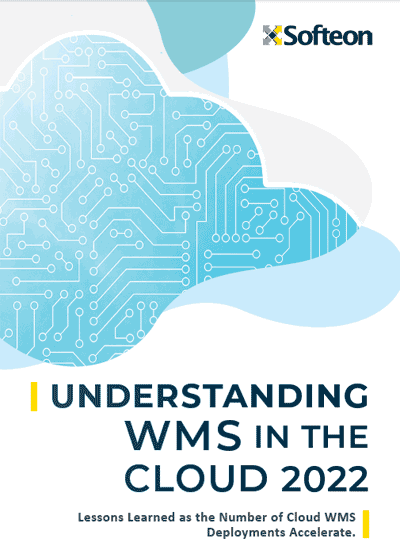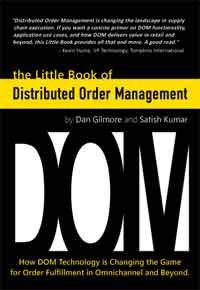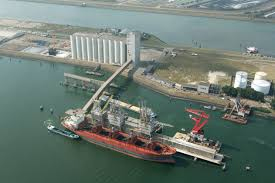 |
Dec. 9, 2022
|
This Week in SCDigest |
||||||||||||||||||||||||
|
||||||||||||||||||||||||
|
 |
|
||||||||||||||||||||||||||||||||||||||||||||||||||||||||
Will Two Technology Giants Disrupt the Supply Chain Software Market?
I would argue that we have at one level seen a relatively stable period in the supply chain software market. There's always change in technology sectors, and few years back we saw a wave of new Cloud-based providers, especially in transportation management and global logistics/visibility. Many of these were acquired by larger players, which were in parallel developing their own broader Cloud strategies.
More recently, we've see a number of new AI-based supply chain start-ups, few of which have yet had much of an impact from my view. So we're left with the battle lines we've had for a while between large ERP providers (e.g., SAP, Oracle, Infor), and so-called "best of breed" providers, of which there are dozens or hundreds across supply chain planning and supply chain execution solutions. Some of these best-of-breed vendors themselves have very broad suites of solutions, while others are more focused. Once viewing ERP providers as an existential threat, best-of-breed has learned how to hold its own, and done very well in recent years in general. Is this somewhat status quo to be subject to a supply chain disruption of its own, in the form of two technology giants entering the market? That was my reaction last week after Amazon' AWS web services unit announced a new age supply chain planning solution, following Microsoft - its Cloud-platform rival - making a remarkably similar announcement just a week earlier. Let's take a look. On its side, Microsoft released what it calls the Supply Chain Platform. That, Microsoft said, is a tool that is a combination of its artificial intelligence, collaboration, low-code software, security and Software as a Service (SaaS) applications - whatever all that really means. Microsoft wants customers to build a "connected supply chain" with the aid of its low-code development platform PowerApps. Rather boldly, it further says the new platform supports demand management, supply chain intelligence, supply and demand insights, performance tracking, supplier management and real-time collaboration. That's not all. Microsoft says the platform also provides fulfilment optimization, pricing management, warehouse management, inventory optimization, order track and trace, and more. That would seem to about cover the supply chain software gamut, except maybe "digital twins." Microsoft has also launched a preview of the Microsoft Supply Chain Center, which it says will track world events that may impact a customer's supply chain, orchestrate actions across a supply chain, and use AI to reduce supply and demand mismatches. The Microsoft Supply Chain Center will be fed with data from its own Dynamics 365 ERP, as well as SAP and Oracle ERP applications, and standalone supply chain systems, all magically harmonized. No one can understand what any of this really means from a press release, but combined with some previous announcements it would appear that after playing on the periphery that Microsoft is getting serious about supply chain. You will note some parallels with AWS's announcement just a few days later. Importantly, AWS is an outgrowth of IT development for Amazon's own needs, including supply chain software. Amazon says the new application will leverage machine learning in a way that will give companies greater insight into the current and future states of their inventory. The company has touted for years its use of machine learning and AI to anticipate what its customers will order, and therefore better pre-position inventory across its vast fulfillment network. Amazon says it will make some of these capabilities available to companies running in their existing software on AWS. "AWS Supply Chain" is said to integrate and analyze supply chain data from different systems a company uses, and is then able to produce a better demand forecast, Amazon claims. "We abstract, analyze, and aggregate data. We're able to provide value for each of those standalone applications that you might have in your network of solutions, and then we harmonize data across all of that, which is something that is very unique," Diego Pantoja-Navajas, vice president of new products for AWS Business Applications, said at a conference. He added that AWS is able to bring data from numerous systems so companies can get much better visibility of the global supply chain. Pantoja-Navajas may believe it is a unique capability, but this is also very similar to some of Microsoft's claims. You will also notice some similarity to Microsoft's story in this: AWS says its new solution can automatically generate insights about potential supply chain risks, such as overstock or stock out conditions. It also says that the state of each company's supply chain is managed via a "real-time visual map." So at this point, I am as noted communicating this off of extended press releases, so I have no idea what some of this really means, what is real and what isn't, timings, etc. More as I get it.
|
|||||||||||||||||||||||||||||||||||||||||||||||||||||||||
YOUR FEEDBACK
Feedback will return next week.
What is the current name of the supply chain organization known for decades as APICS?
A: The Association for Supply Chain Management, with the change occuring in 2019.
|







